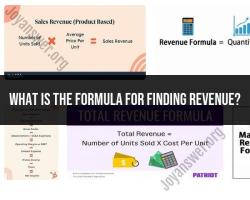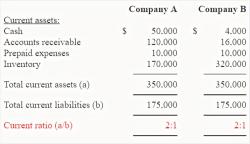What does personal capital mean?
"Personal capital" is a term used in the context of personal finance and wealth management. It refers to the combined financial resources and assets that an individual or household possesses. Personal capital encompasses a wide range of financial elements, including:
Cash and Savings: The money you have in your bank accounts, including checking and savings accounts, as well as any cash on hand.
Investments: This includes stocks, bonds, mutual funds, exchange-traded funds (ETFs), real estate holdings, and any other investment vehicles you may own.
Retirement Accounts: Funds held in retirement accounts such as 401(k)s, IRAs (Individual Retirement Accounts), and pension plans.
Real Estate: The value of real estate properties you own, including your primary residence, vacation homes, and investment properties.
Business Interests: If you own a business or have investments in businesses, your ownership stake or equity in those enterprises is part of your personal capital.
Valuables: Assets such as jewelry, art, antiques, and collectibles can also contribute to your personal capital.
Savings Bonds and Certificates of Deposit (CDs): These are typically considered part of personal capital as they represent savings and investments.
Liquid Assets: Any assets that can be quickly converted into cash, such as stocks and bonds, are also considered part of your personal capital.
The concept of personal capital is important in financial planning and wealth management because it represents the overall financial strength and resources of an individual or family. Understanding your personal capital is essential for making financial decisions, setting goals, and planning for retirement, education, and other life events.
Financial management tools like Personal Capital (the company) help individuals track and manage their personal capital by aggregating financial accounts, providing insights into spending and investment strategies, and offering tools for retirement planning and goal setting. These tools aim to give individuals a comprehensive view of their financial situation to make informed decisions about their money.
Defining Personal Capital and Its Role in Financial Management
Personal Capital is a free online financial dashboard that helps users track their net worth, cash flow, investments, and spending habits. It connects to over 16,000 financial institutions to provide a holistic view of a user's financial situation.
Personal Capital plays an important role in financial management by helping users to:
- Understand their financial situation: Personal Capital provides users with a comprehensive overview of their finances, including their net worth, cash flow, investments, and spending habits. This information can help users to identify areas where they can improve their financial health.
- Make informed financial decisions: Personal Capital provides users with a variety of tools and resources to help them make informed financial decisions. For example, users can use Personal Capital to create a budget, track their spending, and compare investment options.
- Reach their financial goals: Personal Capital can help users to track their progress towards their financial goals, such as saving for retirement or buying a house. Personal Capital also offers personalized financial advice from certified financial advisors.
How Personal Capital Can Help You Achieve Your Financial Goals
Personal Capital can help you achieve your financial goals in a number of ways, including:
- Budgeting and tracking spending: Personal Capital allows you to create a budget and track your spending to see where your money is going. This information can help you identify areas where you can cut back on spending and save more money.
- Investment tracking: Personal Capital allows you to track your investments and see how they are performing. This information can help you make informed investment decisions and reach your financial goals faster.
- Retirement planning: Personal Capital offers a variety of retirement planning tools and resources, such as retirement calculators and retirement income projections. These tools can help you to determine how much money you need to save for retirement and track your progress towards your retirement goals.
The Significance of Personal Capital in Wealth Management
Personal Capital is a significant tool in wealth management because it provides users with a holistic view of their finances and helps them to make informed financial decisions. Personal Capital can also help users to track their progress towards their financial goals and reach those goals faster.
Personal Capital is particularly useful for high-net-worth individuals, who may have complex financial portfolios and multiple financial advisors. Personal Capital can help these individuals to get a complete picture of their finances and make sure that their financial advisors are working towards their best interests.
Overall, Personal Capital is a valuable tool for financial management and wealth management. It can help users to understand their financial situation, make informed financial decisions, and reach their financial goals faster.












